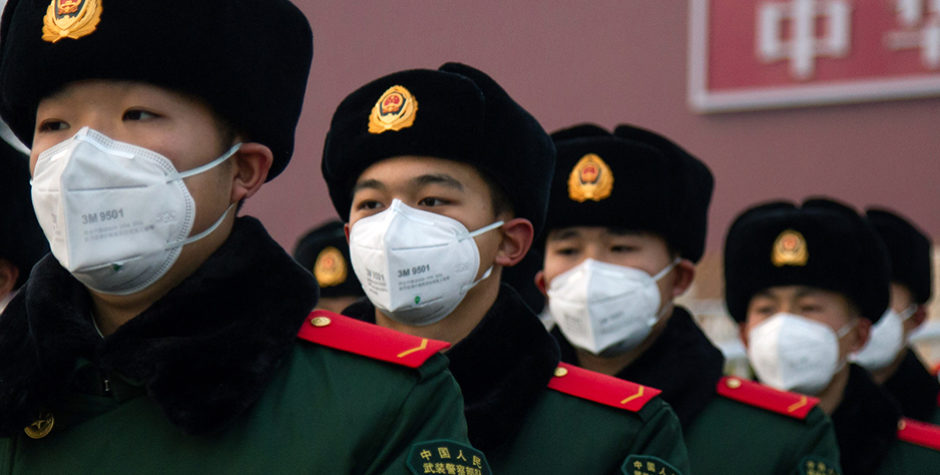China, COVID-19, and Massive National Security Implications
It is more obvious than ever that China—while not an enemy—is a daunting geo-political adversary. Under a totalitarian Communist regime, the government there is secretive and cannot always be trusted as to simple honesty and candor. The latest evidence of this is how it delayed providing critical information about the COVID-19 virus and human-to-human transmission to the rest of the world, influenced the World Health Organization to do likewise, and censured Chinese doctors who wanted to sound the alarm about the virus. During the intervening weeks between what they knew about the virus and letting the rest of the world know, China stockpiled Personal Protection Equipment (PPE). Chinese authorities continue to be reluctant to let scientists from the U.S. and other countries examine the labs and critical information about the virus that the Chinese possess.
The late Ronald Reagan said of the former Soviet Union: Trust. But verify. This counsel is as timely as ever when dealing with the Chinese Communists. While this advice is related more to matters like trade, international finance, and the military—even in most all other areas it is never a given that the government of the world’s second largest economy can be trusted to tell the truth, or as most western nations do, act in a way that protects the general welfare of the civilized world.
All of this has serious implications for national security for a number of reasons. In the ancient days of tribalism, and throughout recorded human history, most wars have not been fought initially over territory or political control. Rather, most military conflicts have started over food, water, and other resources necessary for life. Protecting and providing for its own people has always been a national security issue for all tribes and nations down through history, for obvious reasons. While thankfully we are not on the brink of war with China, their actions regarding COVID-19 have ramifications for the security and well-being of all nations, including the United States.
The COVID-19 virus originated in China. While intelligence officials are still examining details regarding its origin in China, the labs there had been called out numerous times for substandard safety precautions. Some sources indicate that a lab worker at the facility in Wuhan became infected and inadvertently spread the virus when she interacted with other citizens there. Last week, in an interview on ABC, Secretary of State Mike Pompeo stated that China also has a history of infecting the world with diseases and of running substandard laboratories. This, along with China’s tight control of information to its own people and to the rest of the world, was a recipe for a worldwide health emergency and a pandemic.
The world economy and that of the United States is severely damaged. Our food supply, the practice of medicine and transportation—both domestically and internationally—have taken a serious blow. We are still reeling from and adjusting to a new normal forced upon the world by China. Millions worldwide have lost their livelihood. The number of cases is approaching 5 million, with 293,000 deaths to date. There have been 83,514 deaths thus far in the United States.
In addition to these latest facts, China continues to be one of the world’s leading suppliers of medical equipment and pharmaceuticals. The people of the United States are dependent upon Communist China for much of what is critical for sustenance and health. For the sake of national security, this needs to change. Whatever other changes must come about, the United States must bring the research, development and production of these critical supplies back to our country.
Labor is cheap in a place like China where safety standards, salaries, and human rights are also discounted. But it is time for U.S. corporations to look at more than the financial bottom line. Additionally, as Americans we will likely pay more for supplies and medicines produced here. However, it is not only the right thing to do (and it will produce more jobs in the U.S.); this is what we must do for the safety and security of all people in America. When the threat is real—and it is—one cannot place a price-tag on national security.
